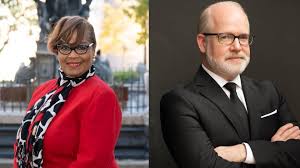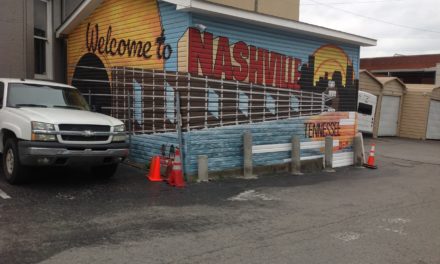Memphis is a city that prides itself on small and locally-owned businesses and it is a city of neighborhoods with establishments that anchor our identity. It’s been said that if you want to truly know what you prioritize, follow your money. The 3/50 Project started back in March this year in Cinda Baxter’s blog (inspired from another article) where she mused that making a concerted commitment to spending locally would be good for the economic recovery. She writes:
The goal is simple. Ask consumers to frequent three local brick and mortar businesses they don’t want to see disappear, and to spend a very affordable $50 per month doing it.
This is imminently doable. The encouraging aspect of The 3/50 Project is that it is a small commitment where no one individual will feel that s/he has to shoulder the entire financial burden alone. Moreover, during the holiday season when people are encouraged to give a little more and may have been saving up throughout the year to be able to do so, why not give even more back to the local economy by buying gifts locally?
Here is why this matters: According to The 3/50 project, for every $100 spent locally, $68 returns to the local economy through taxes, payroll and other expenditures; spent at a national chain, only $43 stays local. Buying online is much less profitable for the local economy (unless it’s a local company that offers online purchasing). Being a conscientious local consumer is a way of paying it forward.
Realizing that times are tough and proverbial belts have been tightened, there are many ways to spend frugally and locally. Here are a few of my favorite ways to buy locally:
* Many of us spend at least $50 on fresh fruits and vegetables each month. There are many Easy Way stores throughout the city and they aim to source their produce from local markets. Additionally, the local farmers market phenomenon continues to grow (although many of them have closed for the winter season. There are several locations where you can buy buy fresh produce and products in the Mid-South.
* For holiday parties or everyday use, consider stocking your pantry shelves with biodegradable cupts from Clovernook Center for the Blind and Visually ImpairedThey hire locally, pay a living wage and produce recyclable products. And if you really want to know more about them, they often give tours if you call ahead.
* Restaurants.com sells coupons for locally-owned restaurants, and they occasionally have discounted coupons as well. There are 75 participating restaurants within 15 miles of the 38103 zip code. If you’re going to be dining out anyway, grab a coupon online and eat at an independently-owned restaurant.
* Buying locally also extends to physical fitness. Some of the best locally-owned busineses in Memphis are the yoga studios that are sustained by regular students adn practitioners (and newcomers!). Depending on where you live and what you prefer, there is a great variety of yoga around town: Midtown (and now DowntownMidtown) Yoga; Bikram Yoga (which incidentally is featured in this and next month’s issues of O magazine, as in Oprah); Better Bodies Yoga; Push Pilates; Give Yoga; and Evergreen Yoga, to name a few.
* Finally, instead of ordering books online, visit your local independent bookstore and buy it from them. If your choice of books is not in stock, they can order for you, too. This may interrupt the ease of point-and-click instant gratification, but the community rewards from buying locally are far greater.
What’s important is that you find the businesses that matter most to you – just three – and commit to spending a total of $50 a month between them. It does take a bit more planning, but it will be worth it. Moever, it’s possible to spend locally and sustainably in town. If you put your money where your heart is, especially during the holiday season, the businesses that identify our neighborhoods will continue to thrive.






Leah:
Bravo! What a great way to think. I grew up in a small town in north Mississippi, close to Oxford, and in the 1950s my dad, who was part of the Chamber of Commerce, constantly promoted “Shop at Home”. He was concerned about dollars leaking out of the local economy to Memphis at a time before big boxes and on-line shopping. The problem was that Memphis was a fun place to visit with a larger selection of higher quality goods. Today’s Memphis still has a better selection, particularly in the retail examples you cite; and the small gift stores with locally made crafts in Midtown and Downtown offer great items at good prices. Maybe someone should publish a list of locally owned businesses that have locally made products. This ties into the local movement – “Live Where You Live”.
Gene Pearson
Thanks Gene! Someone alerted me today to an interesting new trend called Groupon.com that leverages collective buying power and is city-specific. I’m just learning about this idea and I’m not certain that it’s reached Memphis yet. I’d be interested to know if any fellow Mid-Southerners have registered or participated in Groupon?
Awesome post, Leah! I completely agree that supporting locally-owned business is crucial.
Our second home is Cafe Eclectic or maybe Central BBQ? Live and love local. Our family has yet to visit the new Midtown farmers market but it sounds interesting.
Never heard of Groupon.
Cafés are a great example. Rather then a visit to Starbucks why not try a local café like Café Eclectic, Otherlands, Java Cabana, or Bluff City Coffee.
I buy my running shoes from Breakaway Running because they give back to the community in many ways.
I fear that $50 a month goes directly to Boscos.
Easy Way is great but by far our largest monthly expenditure is on food at Kroger. A gourmet grocery store in Midtown would be a great addition.
Bravo to Leah!
Buying/supporting local is all part of loving where you live.
Think of these small locally owned restauranteurs and their staffs who work hard day in and day out to put awesome meals on the table for us. Sending a kind note to the chef (or a glass of champagne!) and an extra few bucks to your wait staff speaks volumes to supporting their hard work.
Cheers and happy holidays everyone!